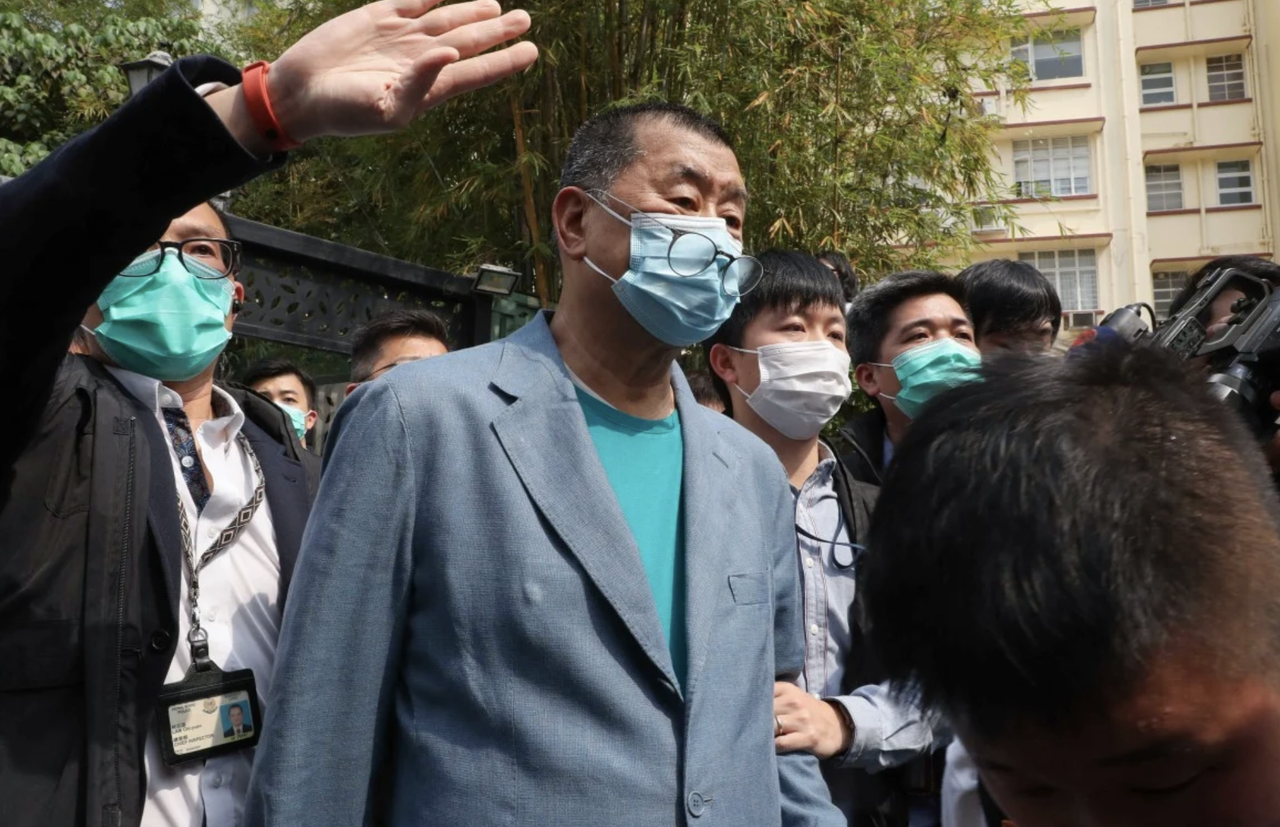Beijing Arrests Hong Kong Media Tycoon & 14 Activists In Sweeping Pro-Democracy Crackdown
We've been watching Hong Kong closely these past few weeks to see if Beijing, having mostly reopened the mainland economy, relieving the pressure for the first time in months, would turn its attention back to its top priority pre-corona: Crushing an insurgent pro-democracy movement in the Special Administrative Region.
Early on Saturday morning in Hong Kong, HK police arrested 15 pro-democracy movement activists, including a high-profile tycoon who was one of the few members of the HK business community to vehemently back the protest movement, according to the SCMP.
The targets included Hong Kong media tycoon Jimmy Lai Chee-ying, and 14 other supporters. The pretext for the arrest was their involvement in last year's protests.
Jimmy Lai
Even if the name isn't widely known in the US, Lai is a major figure in the leaderless and mostly amorphous Hong Kong pro-democracy movement. He has been targeted before, including an attack on his home carried out last fall by thugs likely backed by the Communist Party.
The sweeping crackdown comes more than six months after the last major pro-democracy demonstration in the city, though some protesters took to the streets during the early weeks of the corona outbreak to demand that borders be closed and other heavy handed measures be taken by the city government to prevent a re-run of the SARS outbreak, which killed more than 300 in HK. That movement, of course, was first set in motion last spring in response to an extradition bill being expedited by the government that would have made Hong Kongers subject to prosecution (and, they feared, persecution) in mainland Communist Party-controlled courts.
Details provided by SCMP claimed that police tried to arrest Lai n the middle of the night, but were forced to wait until he returned home (American cops could definitely show their colleagues in Hong Kong a thing or two about how to pull off a 'tactical GPS takedown').
The arrest were reportedly sanctioned by Hong Kong Chief Executive and Beijing puppet Carrie Lam.
Officers earlier showed up at the home of the Apple Daily founder, but he was not in at the time. He returned in the afternoon and was arrested at 2.50pm. He was accused of organising and participating in unlawful marches on August 18 and October 1 from Causeway Bay to Chater Road in Central.Police also entered and searched his place under a warrant.Others arrested included former lawmakers Martin Lee Chu-ming, Albert Ho Chun-yan, Lee Cheuk-yan, “Long Hair” Leung Kwok-hung and Au Nok-hin, according to legal sources.
Several former lawmakers were also detained and arrested (Beijing has already pushed out many of the most progressive pro-democracy hardliners from the HK legislature), including those named by the SCMP below:
Also held were former lawmakers Yeung Sum, Sin Chung-kai, Cyd Ho Sau-lan, and activists Raphael Wong Ho-ming, Figo-Chan Ho-wun and Avery Ng Man-yuen.They were detained over organising and joining unlawful assemblies on August 18, October 1 or October 20 last year. The suspects were taken to several police stations.Martin Lee was taken to Central Police Station in Sheung Wan, while Leung Kwok-hung was sent to Ngau Tau Kok Police Station.Police also showed up at the home of former legal sector lawmaker Margaret Ng Ngoi-yee. She later reported to Central Police Station and was arrested there. She was involved in the August 18 rally.
Several of those arrested were charged with additional crimes - that is, appearing at more rallies than the demonstrations cited above, according to a police superintendent. Lam added that the operations are "still ongoing" and that more arrests might follow. The arrested will be arraigned in a Hong Kong court on May 18.
Of course, this crackdown will be seen as nothing less than a brutal outrage and a betrayal by most democracy-minded Hong Kongers (the vast majority of the population). By arresting Lai and targeting other well-known figures in the movement, authorities almost seem like they're trying to bait Hong Kongers into returning to the streets.
Perhaps that's their strategy: If anybody tries to march this time, police can resort to brutally suppressive tactics in the name of safeguarding public health. However, we can't help but notice that it almost seems like Beijing is trying to trigger a return to the massive rallies of last summer.
But why is Beijing even willing to risk the possibility that thousands - potentially hundreds of thousands - of Hong Kongers might react by crowding into the streets in the middle of a resurgence of the virus? Recent reports from Hong Kong suggest the economy is already reopening, and locals are growing more comfortable being back out in the street.
Why did Beijing pick now to rock the boat, and prosecute individuals for crimes that roughly one-third of HK's population engaged in at one time or another?

No comments:
Post a Comment
Comments always welcome!